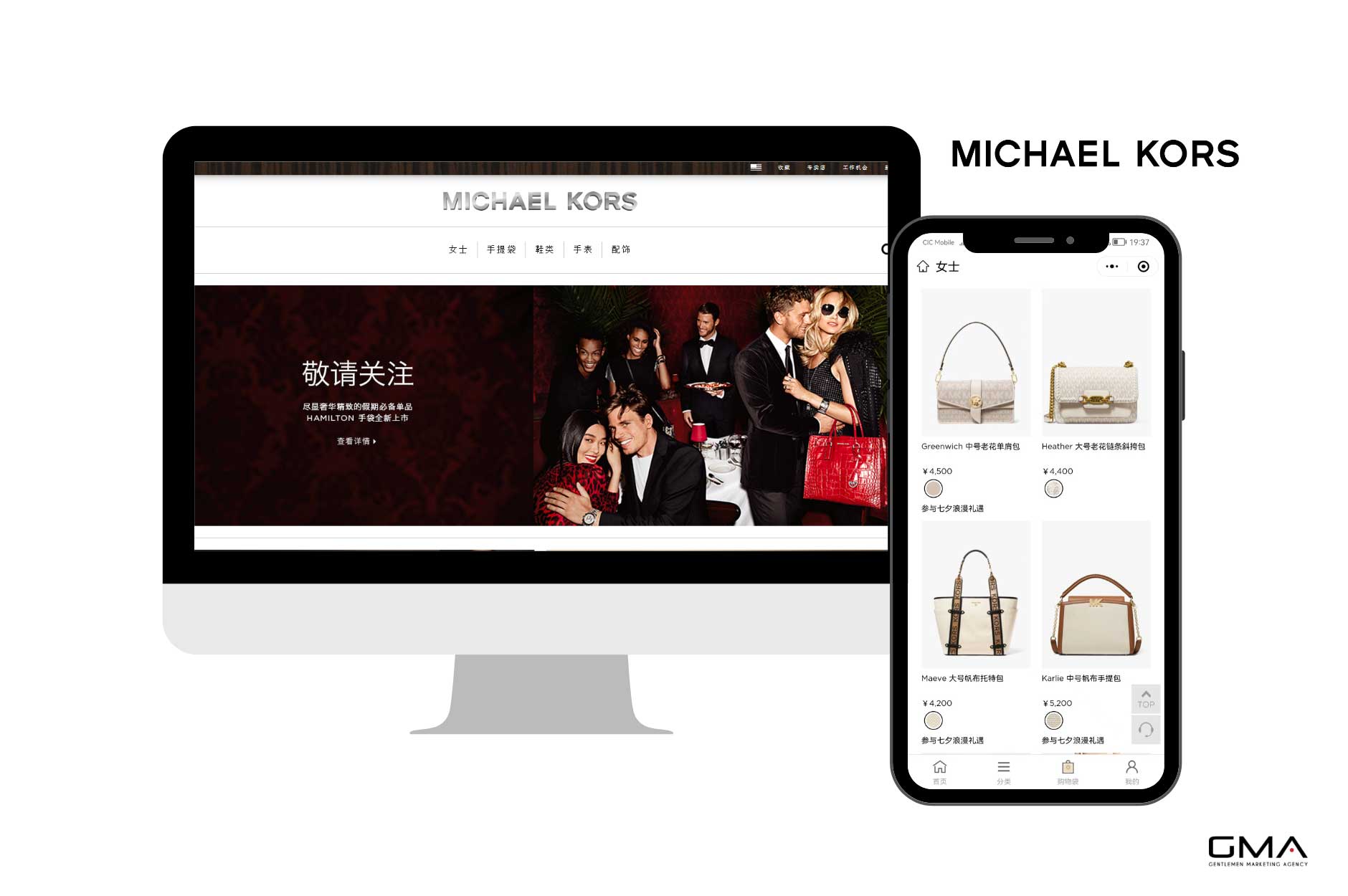Running a successful business is no small task, and tapping into the vast Chinese-speaking market can present its own set of challenges. If you’ve been wrestling with how to make your mark in that sphere, we’ve got some insights that might just light the bulb for you.
Imagine this: translating your website into Mandarin could potentially skyrocket your traffic from China by an impressive percentage! This article is here to unpack the numerous advantages of offering your website in Mandarin Chinese and shows you how it can be the key ingredient to extending your customer reach.
Intriguing idea, isn’t it? Stick around as we explore this together; let’s envision soaring your business to new heights!
Why Multilingual Websites are Essential for Business Success
As a business, achieving success in today’s global market requires more than just having a website; it involves tapping into diverse languages, like Mandarin Chinese. This way, you not only increase your brand engagement but also gain credibility and improve the customer experience.
Multilingual websites open doors to new markets and facilitate communication with a broader audience. You can’t underestimate the power of communicating to customers in their native language – it fosters trust, enhances user experience, and makes your business stand out from the competition.
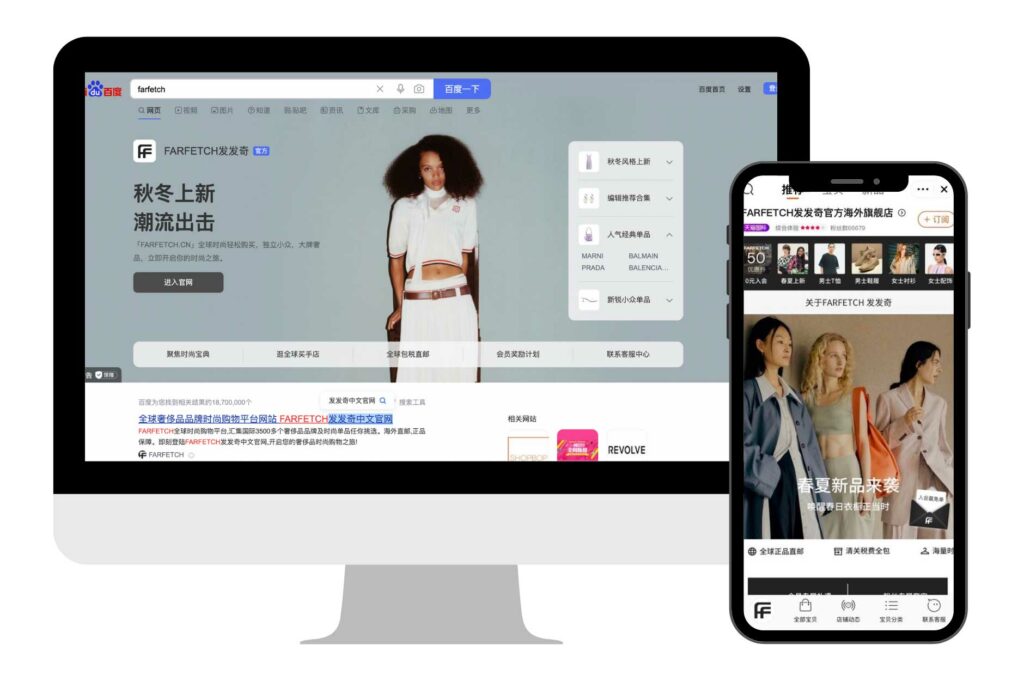
Language barriers
You always need to be aware of the fact that not many Chinese people are fluent in English. Even though in many Chinese cities or on Chinese social media you can hear and see people talking and texting in English, it’s not easy for them.
Many times, even when they understand some English, they will search Baidu, the most popular search engine in China, in the look for Western websites in Chinese, because they don’t want to struggle to understand your content.
So, if you don’t want to miss the wast audience that will simply skip your website if you don’t bother to localize it for the Chinese market, you should translate the content. You can’t expect Chinese people to speak English if you don’t learn Chinese either.
Increased brand engagement
People from Mainland China love to see stuff in their own language. It makes them feel at home. This is true for your customers too. When you talk to them in Mandarin on your own site, they feel closer to your brand.
They start to trust it more and engage with it more often. This means they might spend more time on your site, check out different pages, or buy a product, even though other websites offer competitive prices. In the end, this could lead them to like and support your brand even more! So, creating a Mandarin version of your website can be a great way to boost how much people interact with our brand.
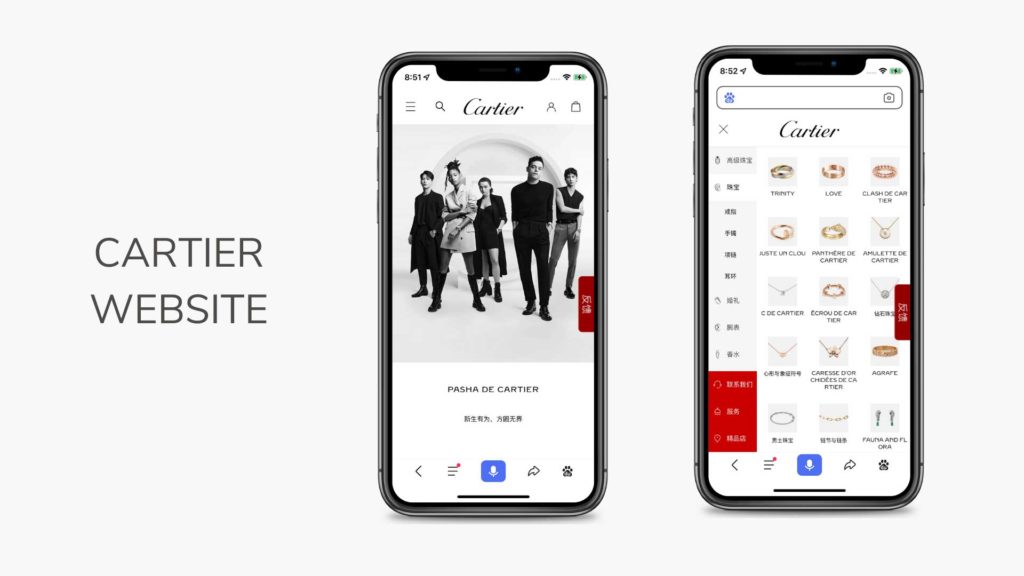
Gain credibility
I see how a multilingual website works well for a business. It adds a touch of class to your brand. It tells consumers worldwide the world that you mean real business. To me, it says we are global! It’s like showing off our ability to serve different customers, especially Chinese ones.
Now, let’s talk about translating into Mandarin Chinese. We both understand its value in today’s market. Adding the Chinese language makes your brand very accessible to this growing force.
They will see you as a credible player who respects their culture and needs.
Improved customer experience
Having a multilingual website means better service for your customers. Think about it from their view. They come to your website and see everything in their own language, Mandarin.
This makes them feel at home and they can know more about what you sell or offer.
This is very important when we talk about online shopping. In fact, over half of online shoppers say that having information in their own language is more important than price! By using their preferred language, you make it easy for these buyers to decide on what they want to buy from you.
It’s clear then – giving your customer a good experience in his own language brings trust and raises satisfaction levels high!

Multilingual SEO
SEO is key for any website. But for global success, we need multilingual SEO. This means making the site show up in search results around the world. For a Chinese audience, your website must be optimized in Mandarin Chinese.
China uses Baidu as its main search engine, not Google like us here. The rules are different there — and that includes using the local language too! The use of Mandarin boosts the website’s visibility on Baidu searches big time. In fact, Baidu prioritizes Chinese websites and mobile apps and they will always win with foreign competition.
Tips for Building a Responsive and Appealing Website in China
Creating an effective and engaging Mandarin Chinese version of your website requires a deep understanding of local needs, careful consideration of design elements, and appropriate live chat features for user convenience.
It’s crucial to make sure the site is mobile-friendly, given China’s high rate of smartphone usage. Lastly, adhering to Chinese internet regulations helps eliminate potential obstacles in reaching out to this vast market segment.
Understand the need for a Chinese Mandarin website
Many companies want to do better in China. For this, you need a Chinese Mandarin website. It will help your company be high on the Baidu search engine list. Remember, Baidu is a big deal in China. If you want to compete with the best Chinese websites, you need to compete on their terms.
Having a dedicated website hosted in China, and in Chinese language boosts your visibility and credibility. Your brand must look good to Chinese users too. Don’t forget, what looks good to us might not look good to them! So make sure that your site fits their style and uses responsive design preferred by the Chinese audience.

Consider graphic design and UX for Chinese users
I consider graphic design and User Experience (UX) for Chinese users very important. You should start by following a graphic chart that appeals to Chinese users. In general, they like bright colors and flashy animations.
They are not as fond of minimalistic, classy websites as we are, and prefer to have a lot of information and links on the landing page so that it’s fast and convenient to navigate the page.
Less is definitely not more in China, and they will look more fondly to a website that is well-designed and uses all the available white blank places on the page, filling it with additional links and banners.
Incorporate live chat and payment options
In China, websites typically serve as a credibility check for brands rather than direct sales platforms. It’s essential to have a live chat function, as Chinese consumers expect immediate responses, mirroring their experience on major platforms.
Displaying clear contact information, including company address, phone number, and WeChat details, is crucial. Avoid linking to blocked services like Facebook or Twitter.
If you offer products or services directly, integrate popular payment methods like WeChat Pay and Alipay to ease transactions and encourage conversions.

Ensure mobile-friendliness
Mobile-friendliness is a must for your Chinese website. Why? Most users in China surf the web on their phones. A mobile-friendly site helps them view your content without trouble. It also makes it easy for them to use features like booking or shopping carts.
This boosts user experience and engagement, which are key to business-to-consumer success. To make your site mobile-friendly, you need to use a responsive design. Responsive design uses flexible grids, fluid images, and media queries to work well on all screen sizes.
The Baidu search engine likes sites that are easy to read on a phone because they give users what they want. And if Baidu likes you, more people can find you online! So don’t forget: when building out your Mandarin website, always keep the mobile user in mind.

Optimize your website for Baidu
Optimizing your website for Baidu, China’s leading search engine, requires a unique approach distinct from Western search engines. Start by ensuring your website is hosted in China with a .cn domain, as Baidu prioritizes locally hosted sites.
Content should be in simplified Chinese, tailored to the local audience’s cultural and linguistic nuances. Prioritise keyword research specific to Baidu and infuse these keywords naturally into your content, meta tags, and alt tags.
Consistent, high-quality backlinks from reputable Chinese websites can boost your site’s credibility and ranking.
Finally, integrating Baidu-specific tools and services, such as Baidu Webmaster and Baidu Analytics, can offer valuable insights and further optimize your site’s performance.
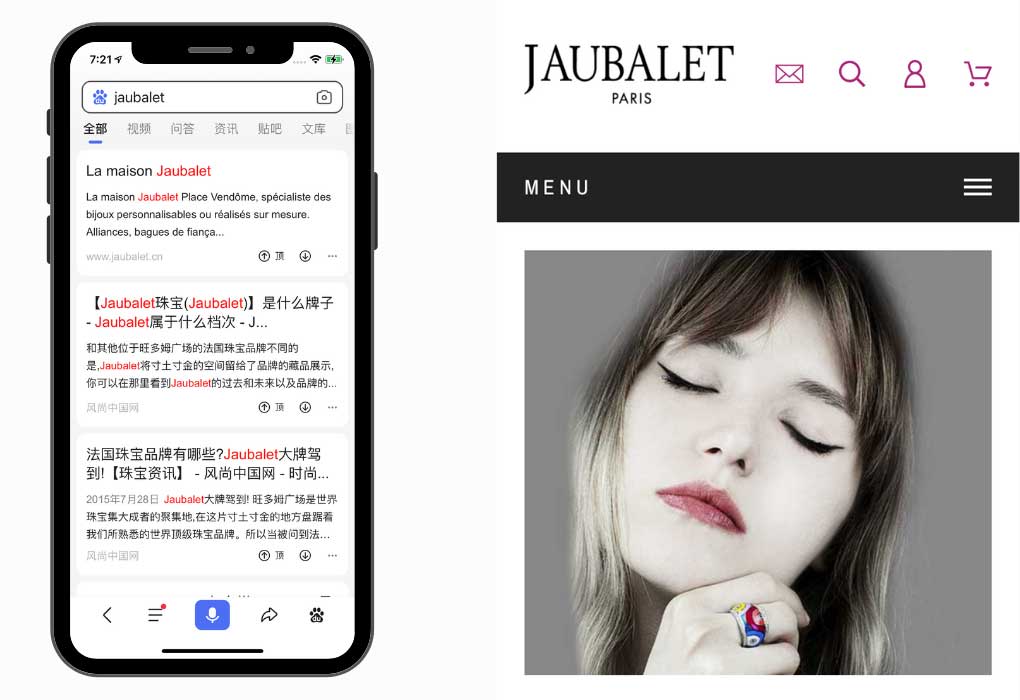
Adhere to Chinese internet regulations
Chinese internet rules are strict. Chinese authorities control what people can see on the web. To follow these rules, you need to know how they work. For example, your website must rank well in Baidu, not Google. You also need to get an ICP license to host your website in China (or Hong Kong).
Make sure you write your content in Mandarin Chinese. This will also help with censorship laws that block certain words and ideas online.
Be aware though; this may be tough as Google support is not there to help. I also suggest working closely with The Cyberspace Administration of China when setting up your website so it fits their policies properly.
Best Practices and Pitfalls to Avoid with Chinese Website Translation
As you navigate the process of translating your website to Mandarin Chinese, there are many aspects to be aware of.
Understand target markets and buying habits
Knowing your target markets and their buying habits is key to a successful Chinese website. Here are some important points to consider:
- Define the markets you serve accurately. This helps in choosing the right words during translation.
- Study the buying habits of your customers. Their likes, dislikes, and needs can guide your Mandarin website design.
- Look at trends in China’s e-commerce world. This will help you stay ahead.
- Use language that speaks to your audience. A good understanding of user experience is crucial.
- Be aware of customer demographics. This information can shape your marketing strategy for better reach.
- Make sure that the translation accuracy is high so that nothing gets lost or misunderstood.
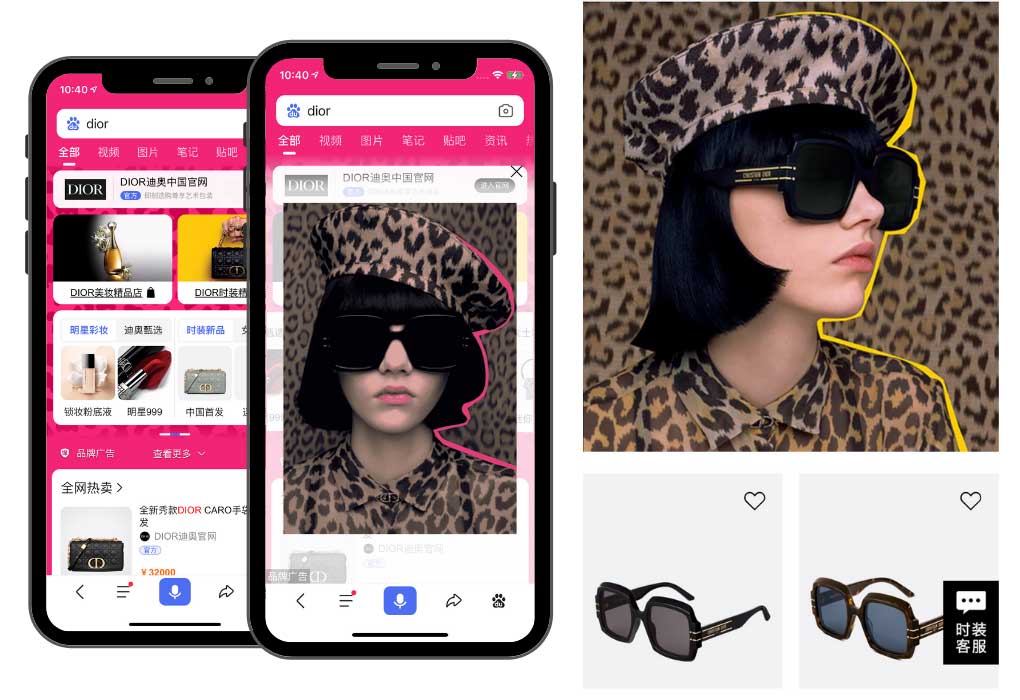
Implement proper character encoding
In Chinese, one sound can have many meanings. We need to use the right character encoding to show this. UTF-8 is a good choice for Chinese websites. With it, your website’s text will show up right online.
Without it, the words might look wrong or confusing to readers. Coding with care lets us reach the Chinese-speaking market well.
Ensure technical compatibility
Technical compatibility is very important. If your website is not compatible, it will have problems. Your site needs to work well on different devices and browsers. Mandarin Chinese fonts can be big or small in size.
Many users in China use their mobile phones for web browsing.
Use the right encoding for characters when translating English into Mandarin Chinese. It helps prevent signs from showing up as wrong letters or numbers on your website. People won’t like a site if it has errors like these ones.
Test your site often! Each update can affect how things look and work on different platforms and browsers.
You need to fix any issue that comes up right away. A good user experience keeps visitors coming back for more!

Considerations for legal and cultural sensitivities
Think of China as a diverse country. It has many dialects and regional twists. You need to know these when translating your site. Also, you should be aware of both the legal rules and cultural norms in China.
The language is complex too. There are two types: simplified and traditional Chinese. Each one suits a different audience. To avoid issues, use translators who understand these matters well.
It’s also vital to show care for Chinese culture on your site. Small mistakes can cause big problems with users in China.
Unlock the Power of the Chinese Market with Gentlemen Marketing Agency!
Understanding the significance of a localized Chinese website for your brand is the first step to thriving in the world’s largest consumer market. At Gentlemen Marketing Agency, we’re not just another agency; we’re your bridge to success in China.

Here’s why partnering with us is the best move for your brand:
- Baidu Mastery: We don’t just create websites; we ensure they’re perfectly optimized for China’s leading search engine, Baidu.
- Tailored SEO Strategies: Our in-depth knowledge of the Chinese market allows us to craft unique SEO strategies that drive traffic and conversions.
- Cultural Nuance: Our team of local experts ensures your brand message resonates authentically with Chinese consumers.
- Social Media Integration: Beyond websites, we help brands establish a strong presence on dominant platforms like WeChat, Weibo, and Douyin.
- E-commerce Expertise: China’s online shopping landscape is vast. We’ll help you navigate platforms like Tmall, JD.com, and Taobao, ensuring your products are in front of the right audience.
- Content Creation: Our content team produces engaging, culturally relevant content that captures the attention and hearts of Chinese consumers.
- 24/7 Support: We offer round-the-clock support, ensuring you’re never left in the dark about your brand’s performance in China.
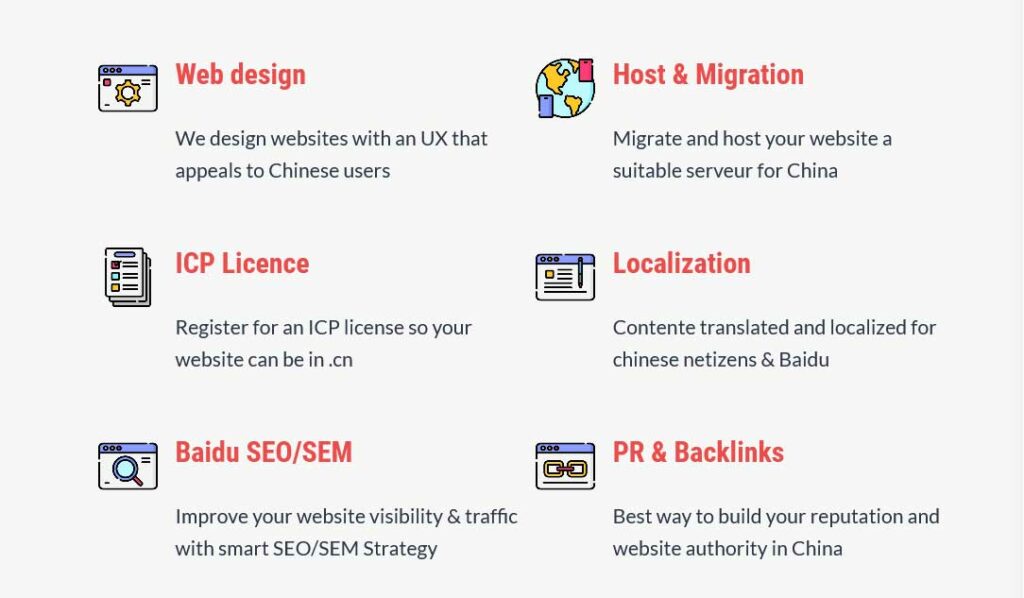
The Chinese digital ecosystem is unique and ever-evolving. Navigating it alone can be daunting. Let the Gentlemen Marketing Agency be your guide, leveraging our expertise to pave your brand’s path to success. Reach out today and let’s embark on this exciting journey together!


